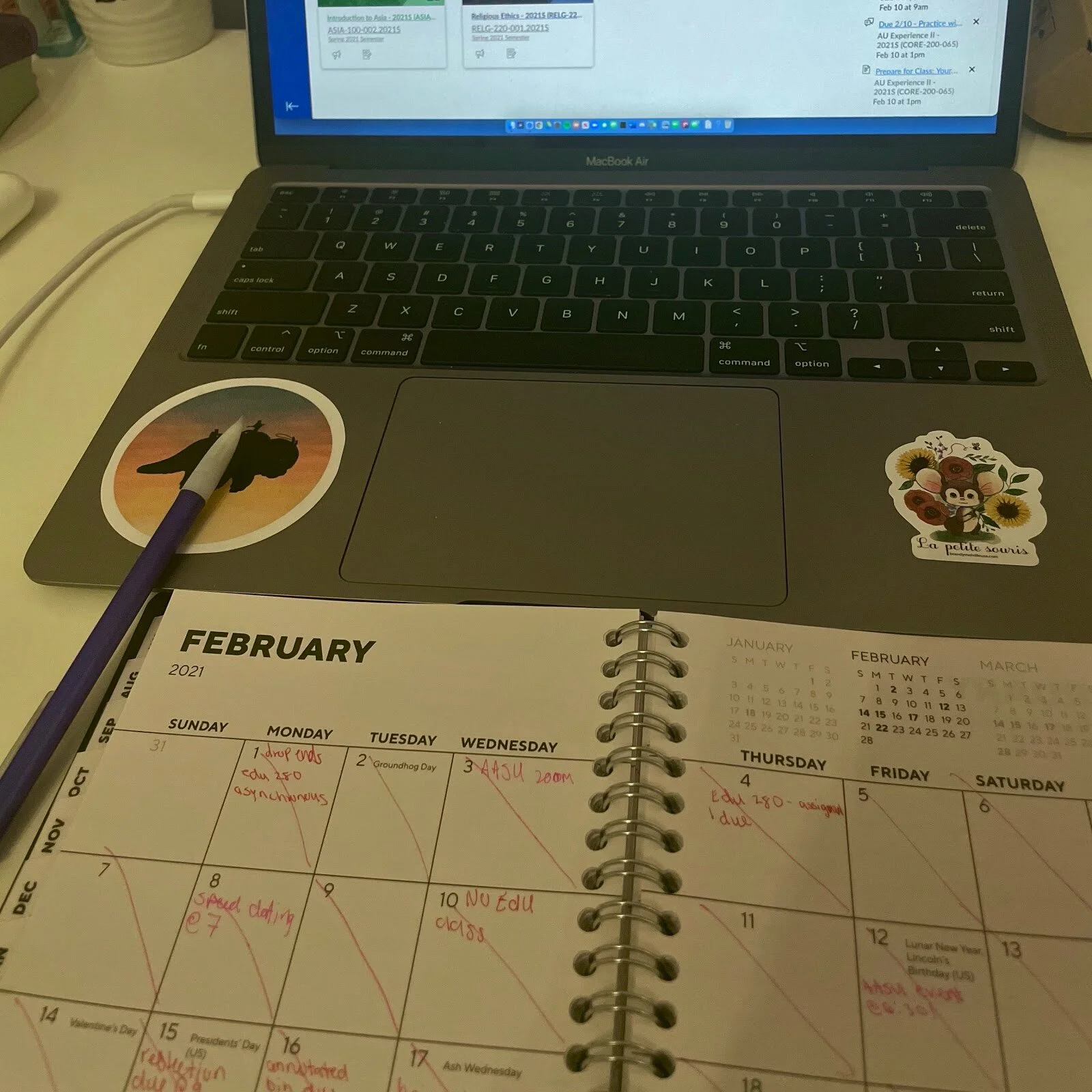After fall semester, students and professors reflect on virtual classes
Students look back at “Zoom fatigue” and struggling to make connections
Courtesy of Hanna Tibbetts
By Mina Allen | Feb. 27, 2021
As American University continues its second semester of online classes this academic year, professors are learning from the experience, but certain hurdles remain.
“Zoom fatigue,” the exhaustion associated with long-term online learning and interaction, has been a primary culprit in mental health concerns regarding online school. According to the Psychiatric Times, a peer-reviewed medical trade publication, the lack of rewarding social interactions via virtual meetings can be draining and ultimately fatiguing over long periods.
Some professors have been shortening the amount of time students are in synchronous classes online, and creating more asynchronous class assignments to balance the workload out.
Hanna Tibbetts, a freshman in the School of Education, is studying from home and feels the fatigue of being online.
“My professors are pretty understanding,” Tibbetts said. “In terms of making friends, it’s a lot harder.”
One of Tibbetts’ concerns is how she will be able to adjust after living on campus for the first time when the Mid-Semester Residential Experience begins in March.
“I’ll have to figure out how to manage my social life and my school life,” Tibbetts said.
School of Communication senior Tori Powell found that her workload from the fall semester was overwhelming, but this semester has been going smoother.
Powell said that when the University began all virtual classes, professors were “just trying to figure it all out,” and the workload felt much heavier.
“Of course I miss my friends,” Powell said. “But I’m kind of ready to graduate and get this whole thing over with.”
Doing online school from home has been especially stressful for students living in different time zones. Sparsh Goyal, a freshman in the School of International Service, is participating in live online classes from South Korea.
“Online classes have been a big struggle,” Goyal said. “My mental health has taken a blow doing classes online.”
Goyal’s sleep schedule has been flipped completely.
Last semester, Goyal had the majority of his classes from 9 p.m. to 1 a.m. local time, but now, all of his classes start between 10 p.m. and 2:30 a.m.
“I can’t sleep because of homework and due dates,” he said.
Joining classes at odd hours has worsened burnout and makes it even harder to focus on studying, Goyal said. He also feels more isolated, beyond the limited interactions of virtual classes. Because of his unique sleep schedule and location, he’s unable to find other students to meet up with in South Korea.
“You see people make friends and meet up in the United States,” he said, “I don’t have the same opportunity as the others. I could talk to friends at AU or an adviser, but they don’t truly understand the extent of my struggles.”
Many students are relying on their adviser more heavily this year, according to Aja Simpson Zulfiqar, a first year instructor and adviser. This year’s freshman class missed out on their “honeymoon phase,” Zulfiqar said.
“I think a lot of people initially felt like they had to manage everything themselves,” Zulfiqar said.
Many first-year advisers had to communicate more with their students to make sure they opened up about their struggles and sought help, she said.
“Use the resource center,” Zulfiqar said. “Remember to put your health as your first priority.”

